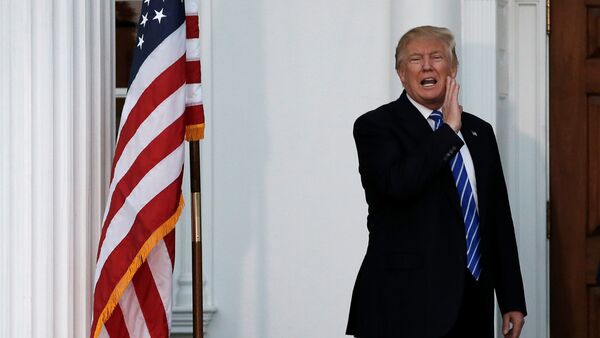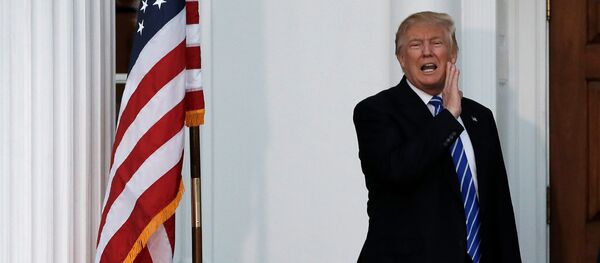Trump Organization General Counsel Alan Garten described the decision to shutter the four Saudi-related companies as routine "housecleaning," adding that there were now no Trump businesses remaining in Saudi Arabia.
Speaking to Sputnik Persian, Press TV political observer Hassan Beheshtipour suggested that there may be other, deeper motives behind Trump's move to close the Saudi businesses.
"This decision has at least two underlying reasons," Beheshtipour said. "First, during the election, Saudi Arabia openly supported Hillary Clinton; Riyadh spent significant sums of money supporting her campaign. However, the desired result was not achieved. After Clinton's defeat, Saudi Arabia tried to recoup their costs," King Salman calling Trump and confirming Riyadh's commitment to strengthening relations with the US.
"This was a very important moment for Donald Trump," the analyst noted, referring to his election. "During the election campaign, he repeatedly said that the US spends huge amounts of money on many countries, which do not provide anything in return, or do not even repay the US in full. Trump insisted that Saudi Arabia, as one of the financial 'scavengers' living off the US, should compensate Washington's spending. After all, in the past the US had entered into multibillion dollar contracts to supply the Kingdom with weapons, including advanced fighter jets, helicopters and other combat aircraft."
The second reason, according to Beheshtipour, may have to do with an actual change in US policy toward Saudi Arabia under President Trump. The observer cautiously admitted that "Trump's Middle East policy is currently difficult to predict or assess. Of course it is undeniable that in the Middle East, Israel and Saudi Arabia are Washington's biggest allies. We have yet to find out what Trump's position will be."
Late last year, Trump famously engaged Saudi Prince Al-Waleed bin Talal in a Twitter war, after the latter called him a "disgrace not only to the GOP but to all of America" and recommended that Trump drop out of the race, because he would "never win." Trump shot back, saying "Dopey Prince @Alwaleed_Talal wants to control our politicians with daddy's money. Can't do it when I get elected."
Al-Waleed was forced to eat his own words after Trump did win the election, and congratulated him with his victory.
However, like the rest of the Saudi royal family, it's likely that Al-Waleed feels a sense of dread and uncertainty over Trump's victory, and not just because of Riyadh's support for Clinton.
Beheshtipour suggested that in so far as Trump's relations with Iran – Saudi Arabia's main regional competitor – are concerned, a great deal will depend on the dynamics of the changing relationship between Washington and Moscow, and on Trump's campaign promises to normalize relations with that country. "In addition, Trump has said of his Middle East policy that the US's main enemy is Daesh, which is presently headquartered in Syria."
Accordingly, the analyst suggested that "if Trump's policy is aimed at fighting Daesh, and not Assad, at the regional level, relations between the US and Iran will not be as tense as they are now."
After all, Beheshtipour stressed, "here the positions of Iran and the US could match. Tehran from the beginning has adhered to the position that Daesh are terrorists, and that it is necessary to defend and support the legitimate government of Syria. So let's wait a bit and see – whether Trump will be true to his campaign slogan, or if his foreign policy will be based on the advice and instructions of the Pentagon and the National Security Council."
If Trump succeeds in conducting a truly independent foreign policy on Syria, this will be sure to irk Riyadh and other Gulf monarchies which have supported jihadist militants in that country since 2011.



